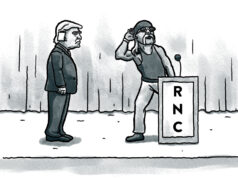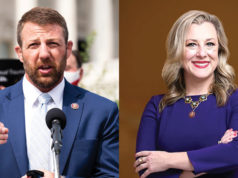
The current election year and its unprecedented turnout bring the age-old argument surrounding sexism and women’s identity to the surface. Over a century ago, hundreds of white women marched to the polls and demanded the right to vote in 1920 with the ratification of the 19th amendment, but it was only as recently as 1965 that all female citizens gained that privilege. Now, in the 21st century, we are at a turning point in our fight against sexism and patriarchal norms geared to label us as mere objects rather than contemporaries.
The most damaging blow to women’s rights in this election cycle came from Republican presidential candidate Donald Trump, who was recorded while boasting about his ability to grope and sexually assault women without consequences in 2005. In the audio recording, he went on to demonize women further as mere sex objects.
Sexual assault is a serious crime that precedes and promotes rape culture if unpunished, as evidenced across college campuses in the United States this year. But more concerning than the recording is the rise in the number of sexual assault cases that were reported in light of Trump’s comments on it. If there is a bright side to the whole debacle, it’s that Trump’s comments and behavior have inadvertently sparked a renewed debate surrounding the harassment of women and their struggles to break free of sexual objectification.
As a result, numerous women have come forward to report sexual assault and harassment in various settings, including a high-level case involving a former Fox News reporter who accused the chairman of Fox News of sexual harassment. Women and young girls all over the United States are using the media to share their personal horrors surrounding sexual abuse and harassment at schools, workplaces and within their homes. Their wounds are all too raw to hear a national candidate act with such indifference toward their struggles and label this as mere “locker room talk.”
Women from various walks of life are using this election to voice their concerns and demanding action be taken to challenge societal norms. The current political action surrounding this issue is lackluster, although we have made some strides with national campaigns surrounding sexual assault as a serious crime on campuses and within professional sports. Early voting indicates women are outnumbering men in battleground states and have the ability to shift the balance of power if they desire. Participation in this movement itself sets a new precedent for women’s rights and creates an opportunity to make meaningful change in the national political arena.
Where do we go from here? A hundred years after the ratification of the 19th amendment, girls and women across the United States are hopeful that their votes will make an impact on the presidential election and challenge the patriarchy that has managed to trap them beneath an arbitrary glass ceiling. The advent of the Hillary Clinton campaign has given women a renewed surge of energy and hope for meaningful conversations surrounding women in leadership roles for a generation of girls in the coming years.
(Editor’s note: Aisha Shah serves as a deputy outreach director for the Oklahoma Democratic Party.)





















